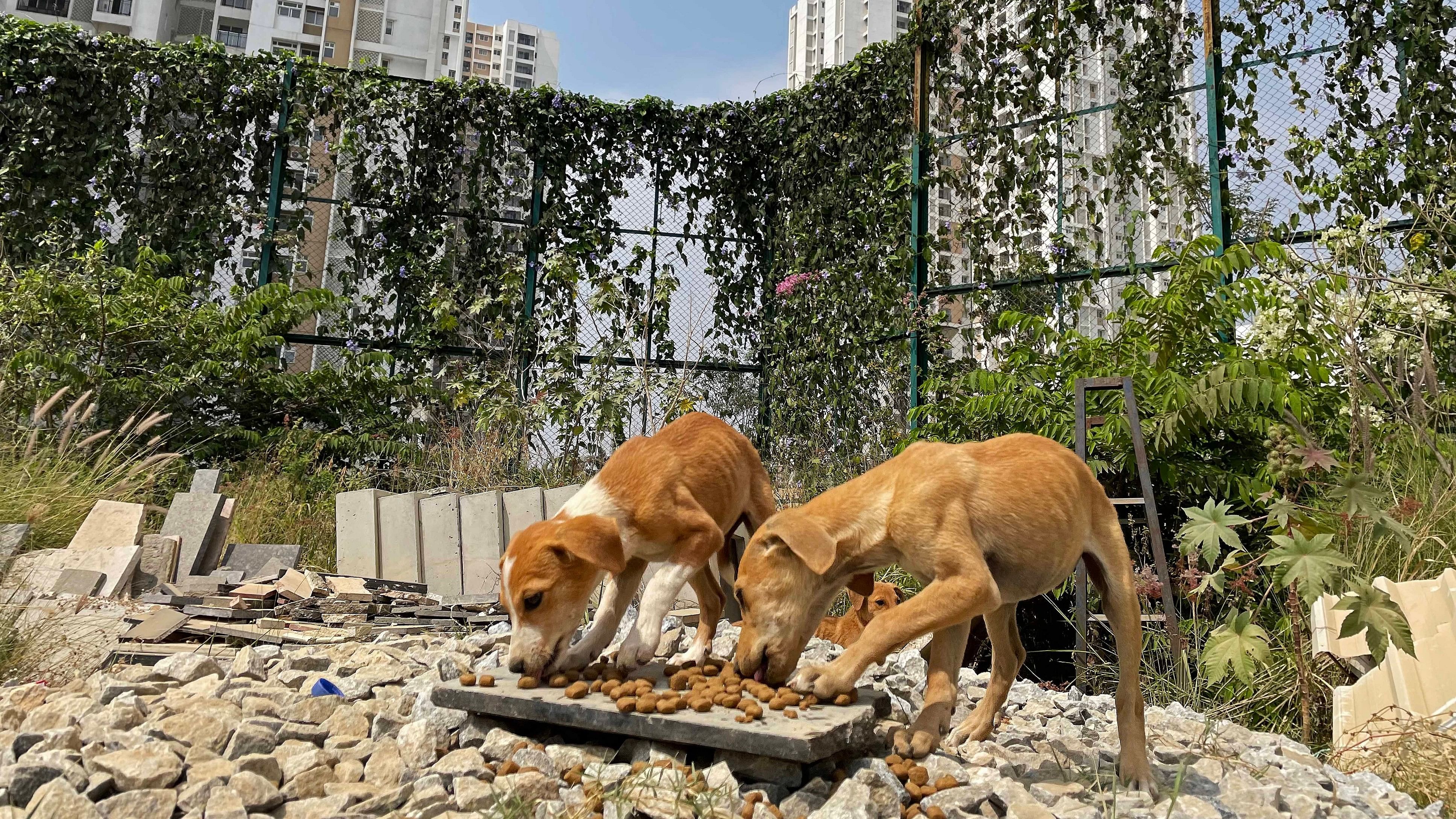
The BBMP aims to create a harmonious ecosystem that ensures stray dogs receive at least one meal a day.
Credit: DH File Photo
Bengaluru: In response to reports of stray dog aggression and attacks in Bengaluru, the Bruhat Bengaluru Mahanagara Palike (BBMP) is set to implement a multi-stakeholder action plan aimed at fostering peaceful coexistence between stray dogs and residents.
The plan includes creating a community engagement system that designates feeding spots for stray dogs and promotes awareness about feeding habits to make localities safer for both residents and animals.
Starting next week, the BBMP will launch a 15-day pilot in these areas: Manjunath Nagar, Bagalagunte (behind the Nagasandra metro station), Gubbala Main Road (Subramanyapura), Vajarahalli (BCMC Layout), and Pottery Town (near the railway station). Each area is estimated to have 20 to 35 stray dogs.
BBMP Special Commissioner Suralkar Vikas Kishore explained that the project will involve key stakeholders: local residents as volunteers, pourakarmikas, restaurant owners (represented by the Bruhat Bangalore Hotels' Association), and staff from both the animal husbandry and BBMP health wings.
"We aim to create a harmonious ecosystem that benefits everyone and ensures stray dogs receive at least one meal a day," Kishore said.
'Coexisting champions'
Localities taking up the initiative will be recognised as "Coexisting Champions" and will collaborate with hotel owners and pourakarmikas to provide food for the dogs at designated spots. The BBMP will soon release a Google form for residents to register as volunteers.
"We will designate multiple feeding spots to prevent dogs from forming aggressive groups. Hotels can contribute leftover food, provided it is checked for safety," Kishore added.
The BBMP plans to fully roll out the project across the city by December.
Prema Prasad from the Koramangala Canine Squad praised the initiative as "one of the best", pointing out that dogs primarily seek food. "When people hit or chase them away, it makes them fearful and aggressive," she said.
Sujaya Jagadish, founder of Save Our Animals Charitable Trust (SOACT), highlighted the importance of involving pourakarmikas and providing ample feeding spots.
She noted that previous attempts to allocate feeding areas through residents welfare associations (RWAs) were insufficient. "Many dogs are territorial and won’t travel far to eat, so this campaign could be highly effective," she added.